Fresh voices have chimed in on The Voice to Parliament
Not all conservatives are against the Voice, and not all progressives are for it
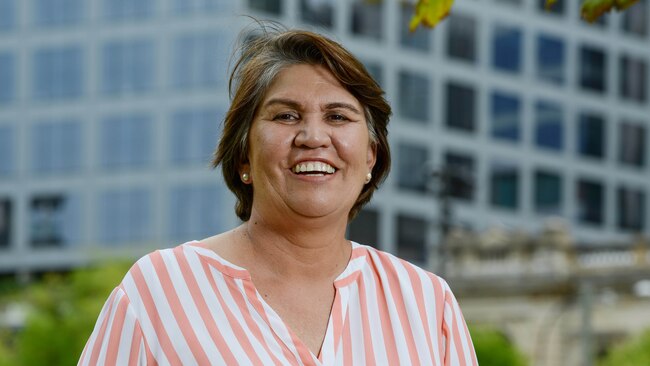
Not all conservatives are against the Voice, and not all progressives are for it
First Nations MP Kerrynne Liddle has criticised the Indigenous Voice to Parliament, saying the plan for a referendum lacks detail and is being rushed to meet a pointless deadline.
The Indigenous Voice to Parliament - shorthand, the Voice - would see a group of Indigenous people chosen specifically to have a say on laws, policies and programs that affect First Nations people.
Prime Minister Anthony Albanese has promised a referendum to decide whether the Voice will be enshrined in the Constitution will occur in the next three years.
The Oz revealed back in May Indigenous Australians Minister Linda Burney wants the Voice to proceed simply, to avoid Australians getting bogged down in the detail of what the Voice would look like.
But Liddle, an Arrente woman and South Australia's first federal Indigenous MP, thinks the Voice is being rushed, and Australians will vote 'no' in a referendum they don't understand.
“The critical thing is they have to explain the detail. If people are going to go to a referendum and say yes, the details have to be settled first," she told The Australian on Tuesday.
“How can you possibly agree to something where you don’t know the detail? The deadline is far too close if that’s the deadline that the government is aiming for.”
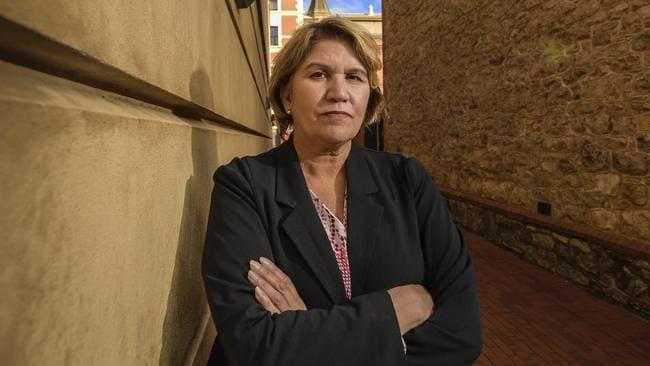
Senator Liddle, a former journalist and employment services executive, said she had been surprised to see advocates of the Voice propose that a referendum be held as soon as May 27 next year, coinciding with the 56th anniversary of the 1967 referendum that gave the commonwealth the power to make laws for Indigenous Australians and count them in the census.
She said she also feared that the focus on the voice could distract from the real-life challenges documented by Closing the Gap, meaning remote Aboriginal people would continue to face poor outcomes as so much time and energy was spent on a city-based discussion over constitutional reform.
Where do our leaders stand on the Voice? It’s not as simple as Conservative vs. Progressive
It’s pretty easy to dismiss the Voice as something that divides the right wing from the left. But it’s a bit more complicated than that.
In fact, an Indigenous Labor MP from the Northern Territory on Tuesday said it was in fact the left-leaning Greens that were the ones standing in the way of a referendum going forward.
“I’m not so much worried about the Liberals; it’s more the Greens,” Tiwi woman Marion Scrymgour told The Australian.
“While they say they are friends of Indigenous people, they’re not really because they just want to run their outrageous agendas all the time.”
Some progressive leaders are actually staunchly against the Voice. Some conservative leaders are all for it.
Below, we’ve mapped out some of the integral voices in the debate moving forward, so you can get your head around the different arguments.
Anthony Albanese
The prime minister is in favour of the Voice being enshrined in the Constitution.
Enshrining the Voice in the Constitution means real, permanent change. It requires a referendum to occur, and can only be reversed through another referendum.
“On behalf of the Australian Labor Party I commit to The Uluru Statement from the Heart in full,” he said, after his acknowledgement of country and during his post election speech.
His declaration, which marked a very clear change from the Coalition’s stance before him, brought huge cheers from the audience, including Linda Burney who was standing in the front row.
“The most important thing, for me, is a Voice to the parliament,” she told The Oz. “A referendum that will change this country and we will deliver it.”
Peter Dutton
Opposition Leader Peter Dutton thinks enshrining the Voice in the constitution will lead to a “third chamber” of the Australian parliament. That is, adding to the existing House of Representatives and the Senate.
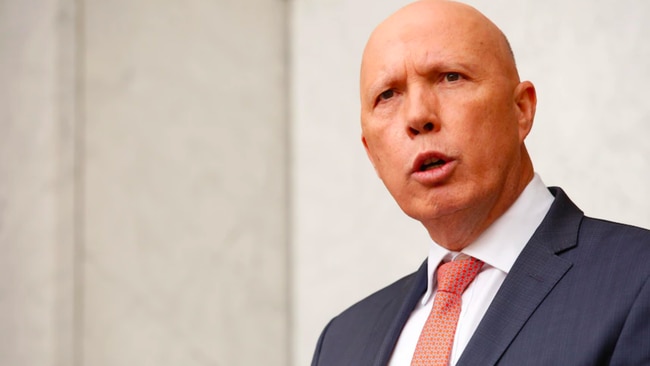
“We have been clear that we want to work with the people to provide… recognition. We are not in favour of a third chamber or voice,” he said in 2019.
“We have a strong democracy. We want to see more Indigenous people in the parliament. It is great Ken Wyatt is the first Indigenous affairs minister. He has a process under way. Let him conduct the consultation. Then we will make an announcement about the next step.”
Ken Wyatt
When Ken Wyatt was Indigenous Australians minister for three years (before the Coalition lost the election on Saturday) had sort of half-committed to the Voice, by promising to legislate it at a regional level, rather than going straight to constitutional change.
Allow us to explain.
Enshrining the Voice in the Constitution is permanent.
Legislating the Voice is only a bit permanent, but it can be undone if a government chooses to reverse it.
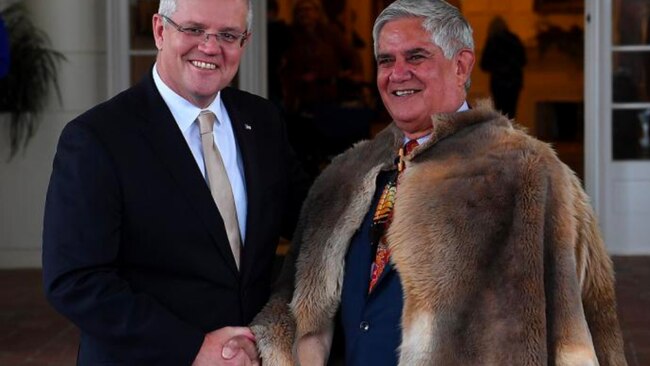
When Wyatt said he would legislate the Voice it upset both sides of the debate - those who wanted constitutional recognition said it wasn’t enough, and those who wanted limited recognition said it was too much.
Wyatt's decision to legislate the Voice came from Indigenous academics Marcia Langton and Tom Calma, who were employed to advise the government on the best next steps after the Uluru Statement.
“The majority of the issues that local people have to deal with are matters that are primarily the issues of state and territory governments and local governments,” Langton argued. “(Things) such as housing, water quality, community infrastructure and schools."
However on Sunday, while reflecting on his election loss, Wyatt revealed he would have voted to put the Voice in the Constitution.
“I would support the right set of words,” Mr Wyatt said.
Scott Morrison wasn't on board with a referendum, but wanted to see the Voice legislated at a regional level.
Dean Parkin
Dean Parkin is the director of the Uluru Statement from the Heart, and believes Australians are ready for a Voice.
"Extensive community research that we and others have conducted over several years has clearly and consistently demonstrated the Australian people support a referendum on constitutional recognition. In short, they are ready to have their say and have been ready some time," he said.
"As with marriage equality and net-zero emissions, the people are in the mood to 'just get on with it.'"
Lidia Thorpe
Greens Senator and Djab Wurrung Gunnai-Gunditjmara woman Lidia Thorpe does not support the Voice because she does not believe it goes far enough.
Instead, she wants to see a treaty between the government and First Nations Australians which would have legal outcomes and recognise Indigenous histories and prior occupation of the land.
Then, she says, we can talk about constitutional recognition.
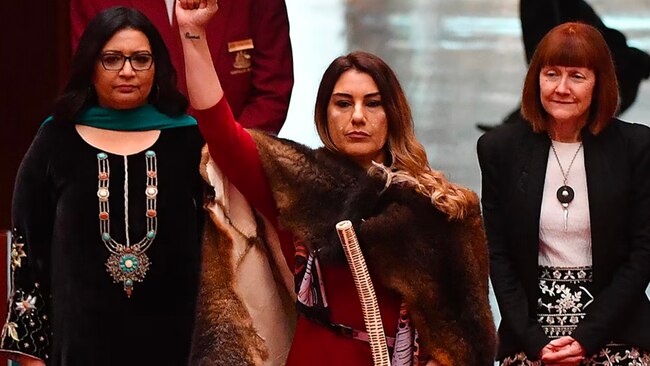
“I believe a treaty process can bring the country together,” she said.
“But we need truth telling first, then treaty, and constitutional recognition can be negotiated as part of a treaty process. We need to talk about a treaty first because we haven’t settled the conflict that’s been happening for over 200 years.”
Her views are shared by Kaleb Mabo - the grandson of Eddie Mabo who pioneered Australia’s groundbreaking Aboriginal land rights case.
Thorpe, the first Indigenous senator for the Greens, has previously called for the Aboriginal Flag to be flown at half mast on Australia Day, and is on a mission to end deaths in custody and mass incarceration of Indigenous people.
Chris Kenny
Conservative commentator Chris Kenny is all for the Voice. In fact, he’s a member of the Senior Advisory Group that gave suggestions to the government on how the Voice should be run.
“It’s about ending disadvantage, lifting education, creating jobs, improving healthcare,” he said.
“The Voice will give Indigenous Australians a say just a chance to make some recommendations and have a say on those special laws and decisions the government takes for Indigenous Australians.”



